Reflexes - 204 Lab Checkout 1
1/12
There's no tags or description
Looks like no tags are added yet.
Name | Mastery | Learn | Test | Matching | Spaced | Call with Kai |
|---|
No analytics yet
Send a link to your students to track their progress
13 Terms
ATNR (Asymmetrical Tonic Neck Reflex)
- Position: supine
- turning the infant's head to one side leads to extension of the arm and leg on the face (jaw) side, and the arm and leg on the back of the head (skull) side to flexion
Integration: 4 to 6 months
- onset: birth
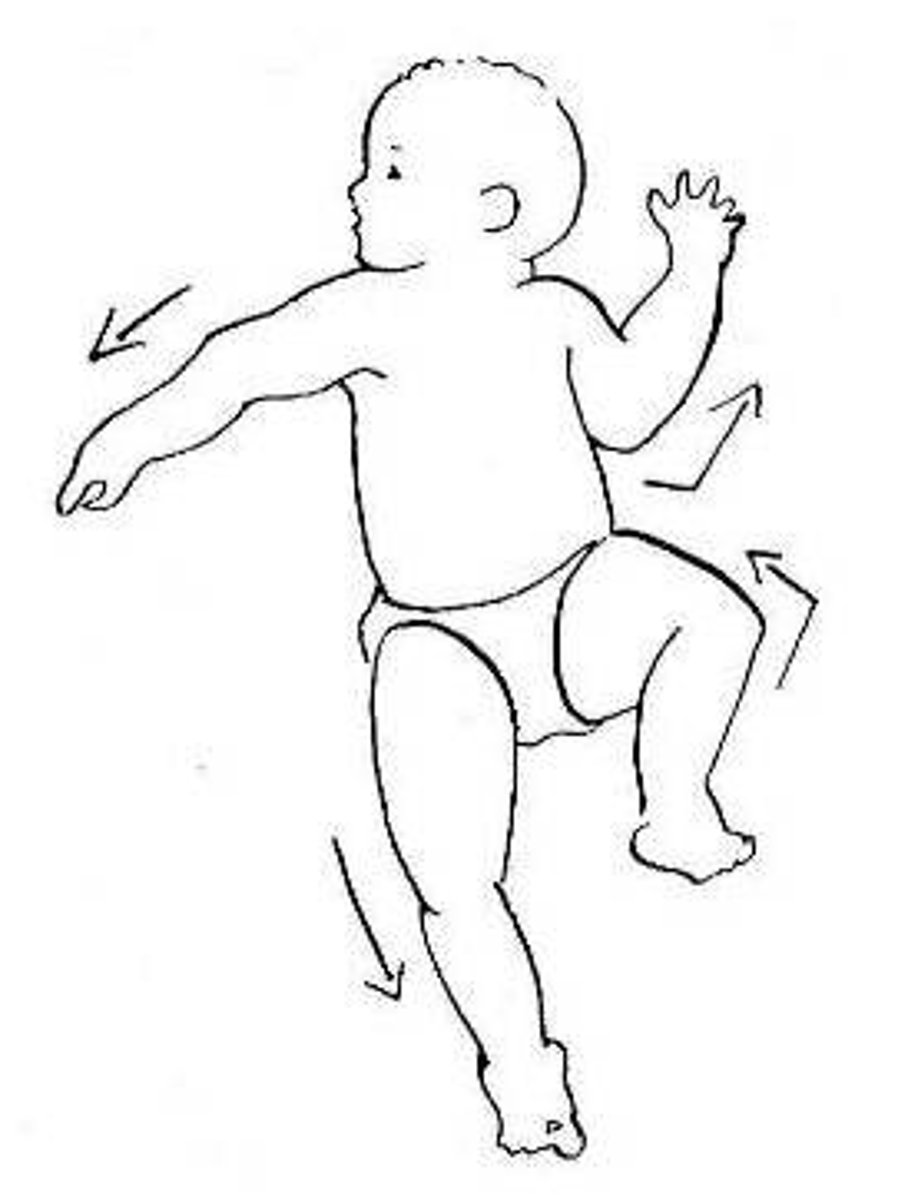
STNR (Symmetrical Tonic Neck Reflex)
- Position: quadruped (on all fours)
- With neck flexion: the UE flex and LE extend; with neck extension: the UE extend and LE flex
- Integration: 8 to 12 months
- onset: 4-6 months
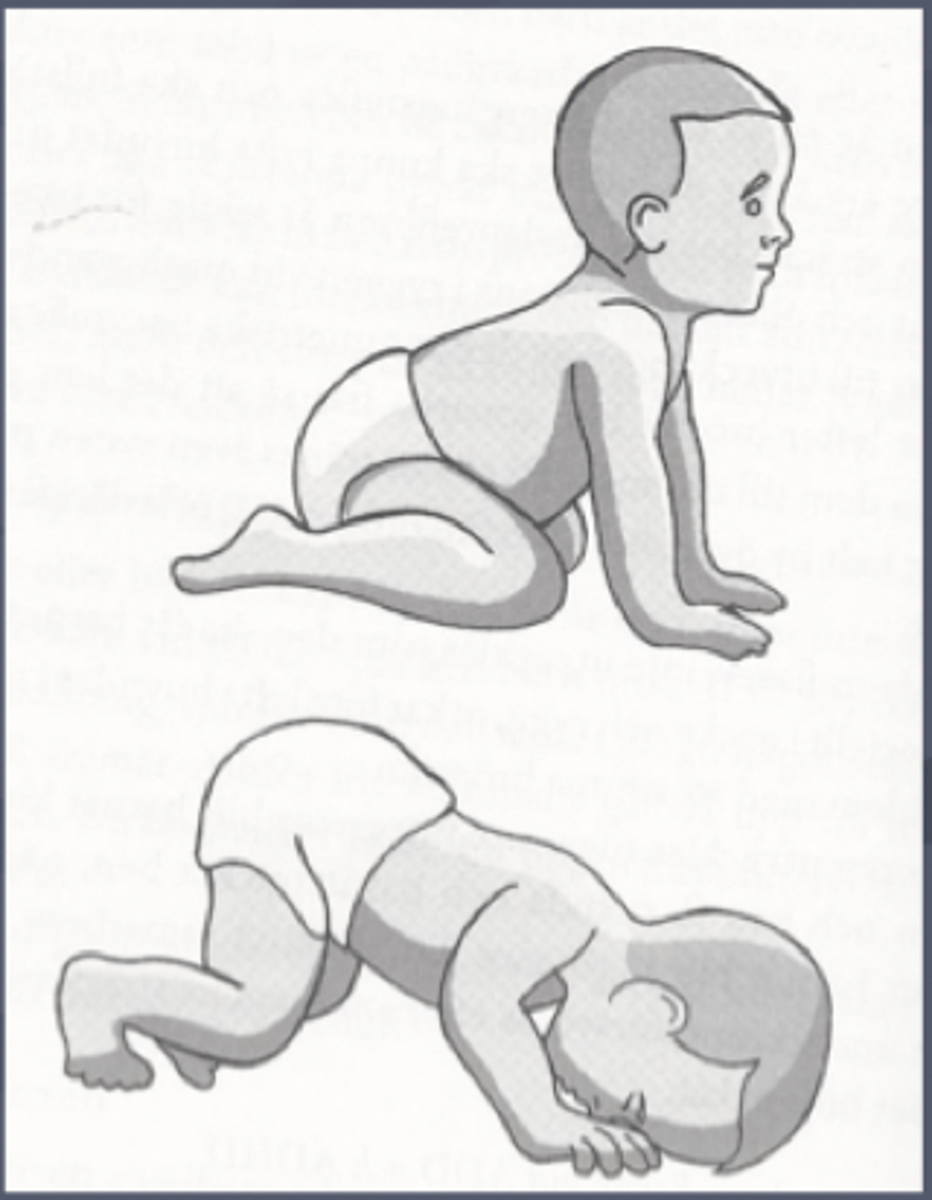
TLR (Tonic Labyrinthine Reflex)
- Position: held in prone suspension
- When the infant's body is held in prone suspension - the neck is flexed, their shoulders protract (come forward) and hip flex; when their head extends, the shoulders retract (come back) and hips extend
- Integration: 6 months
- onset: birth
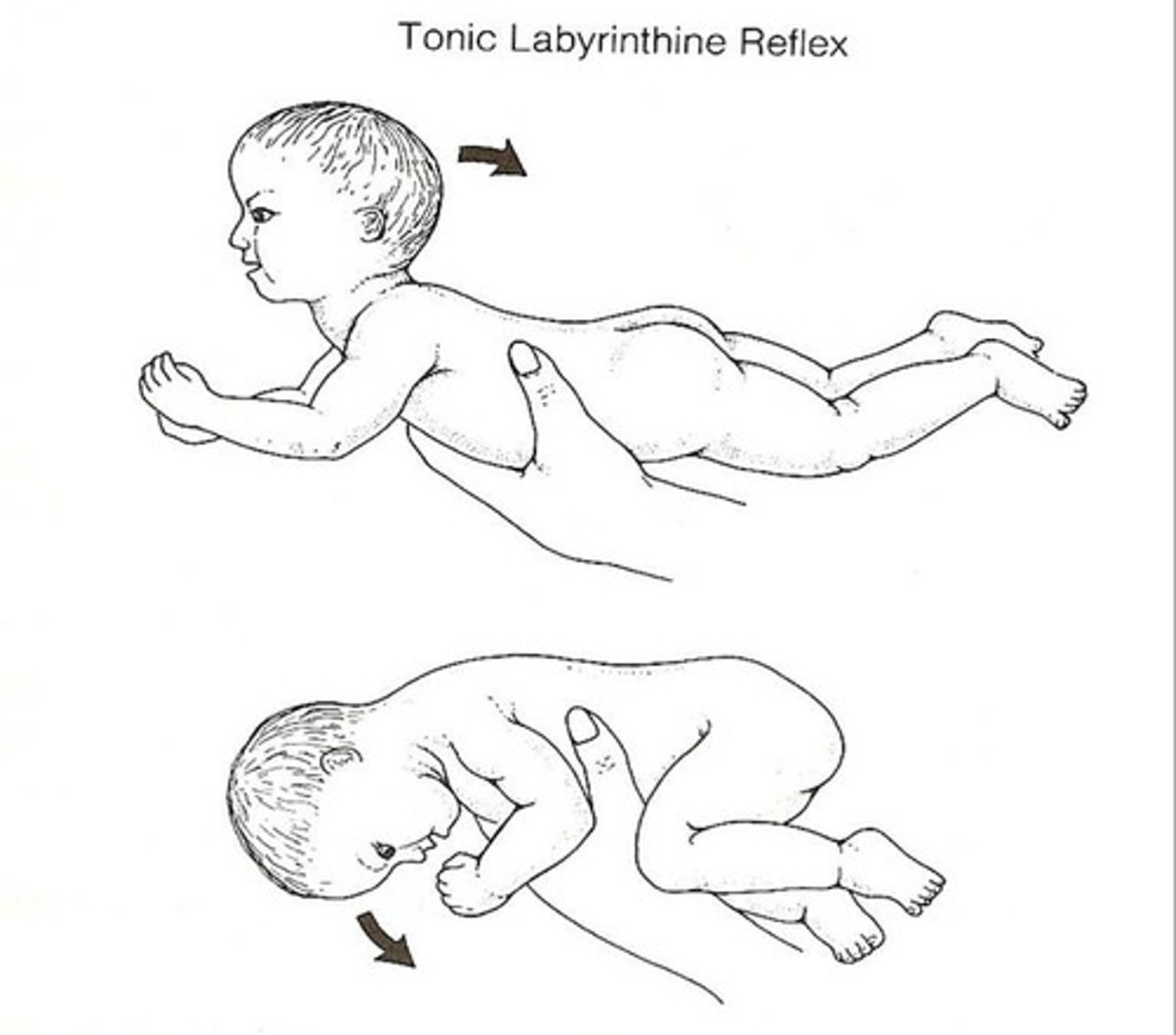
Moro Reflex (aka startle reflex)
- Position: supine, head supported
- Gently release baby's head back with support and bring it back up
- Integration: 2 to 4 months
- onset: birth
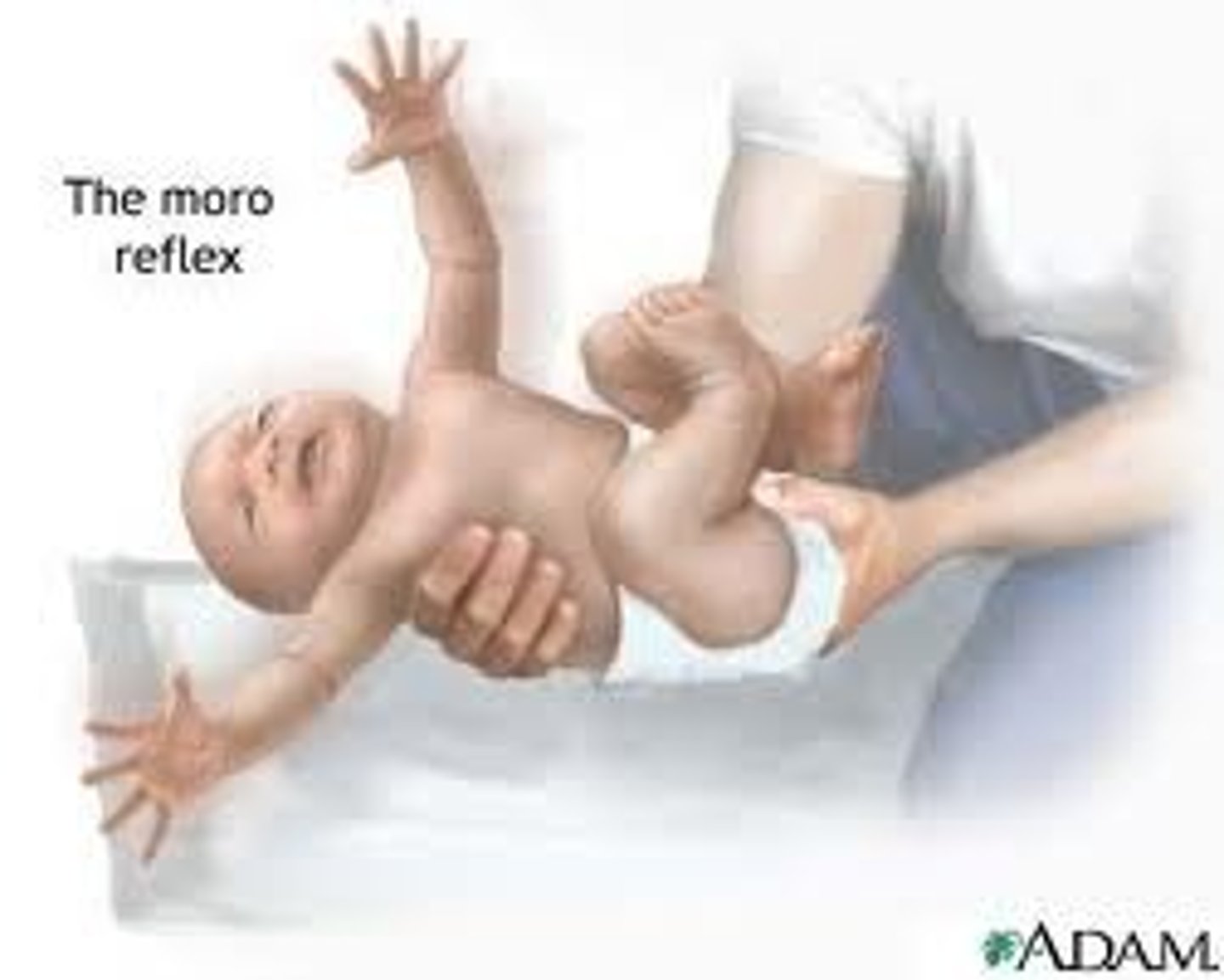
Rooting reflex
- Position: lying supine
- when baby's cheek is touched by stimulus, their head will turn toward the touch, open their mouth and search for the stimulus
- Integration: 3 to 4 months
- onset: birth
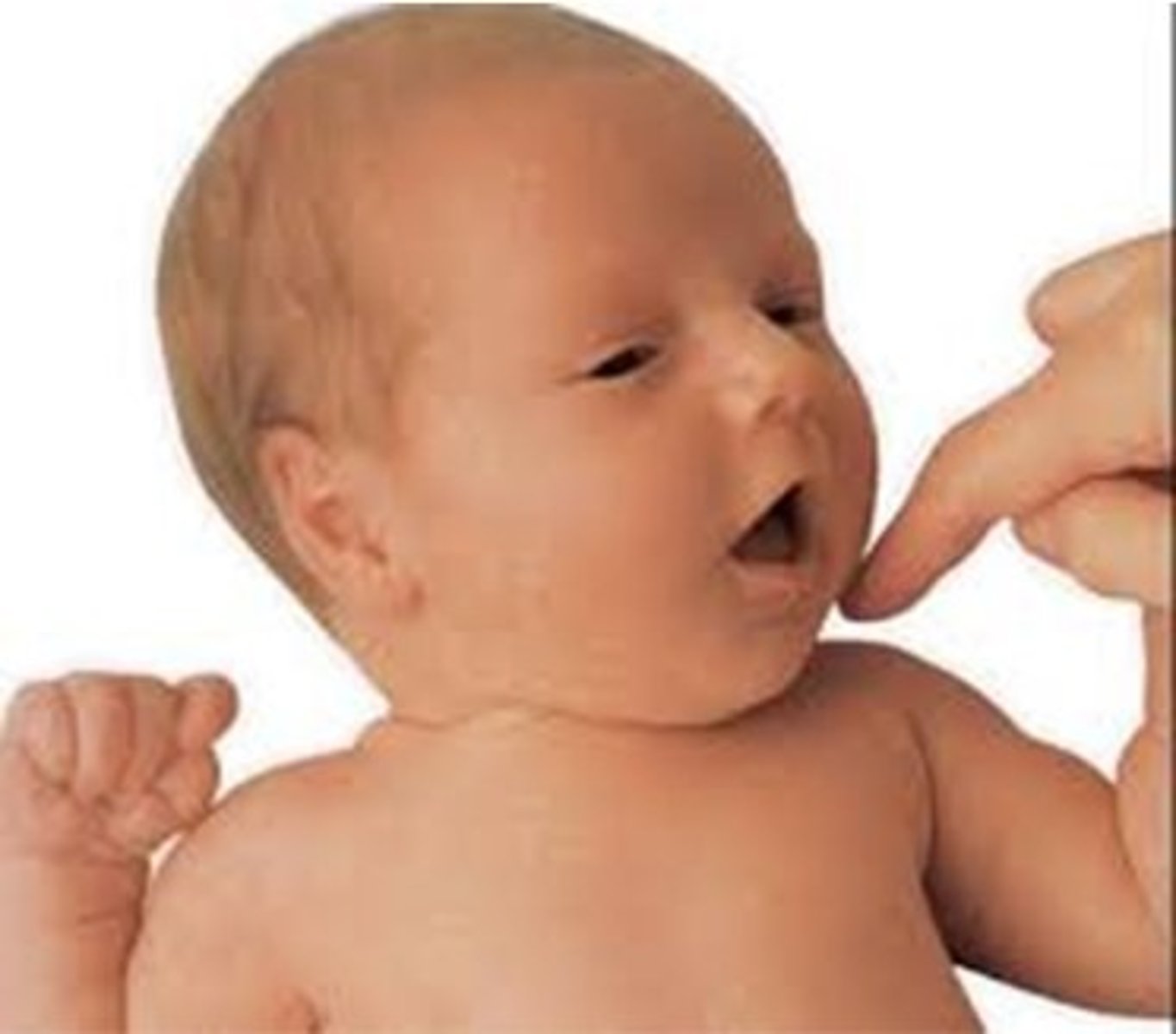
Galant Reflex
- Position: prone
- holding the newborn in prone suspension position and stroking along one side of the spine and their trunk will curve/flex toward the side of stimulation
- Integration: 4 to 6 months
- onset: birth
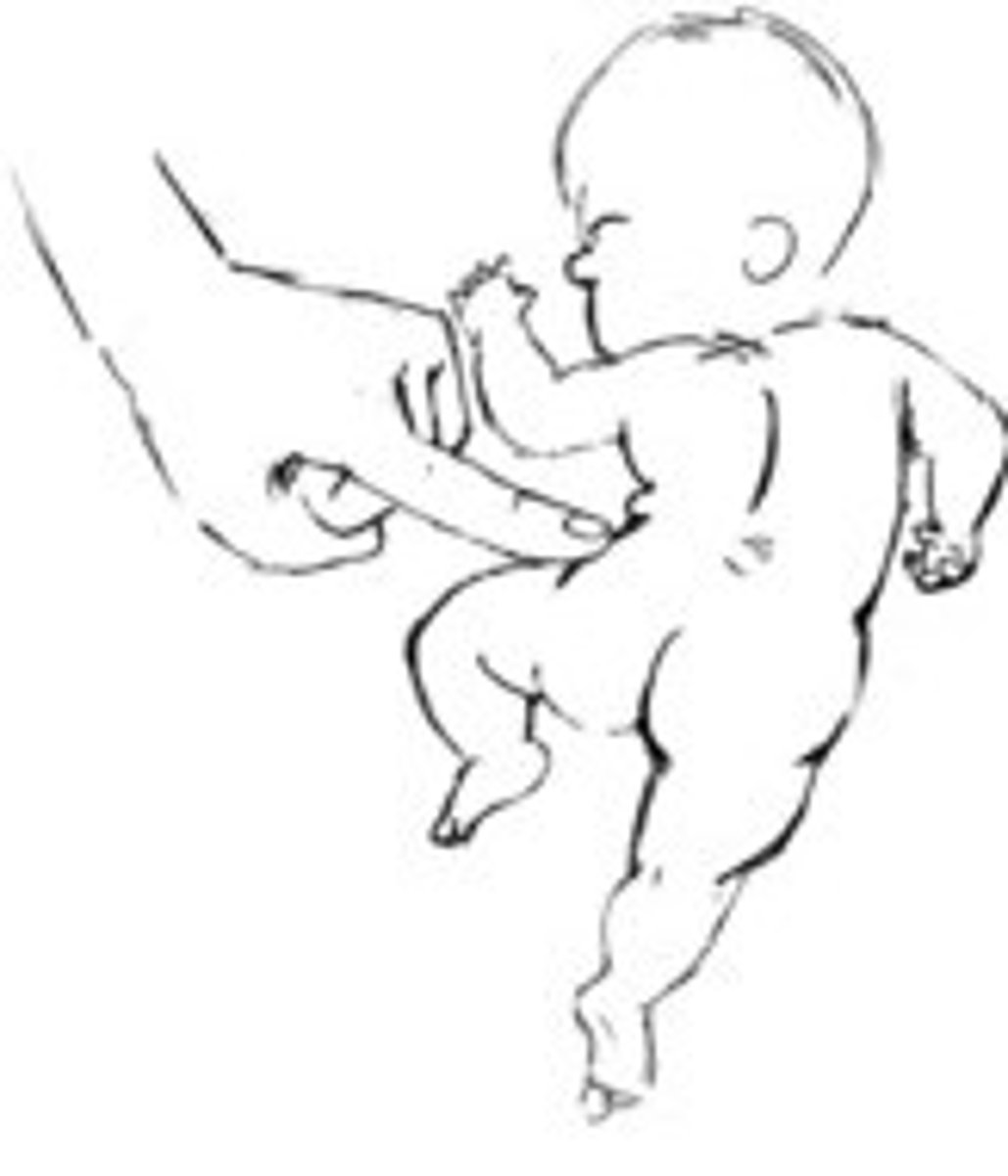
Righting head reaction
Maintain or restore the normal position of the head in space (eyes parallel to the horizon) and its normal relationship with the trunk and limbs
- If a baby is unbalanced or is gently tipped to the side, they will move their head in the opposite direction to keep aligned with their body
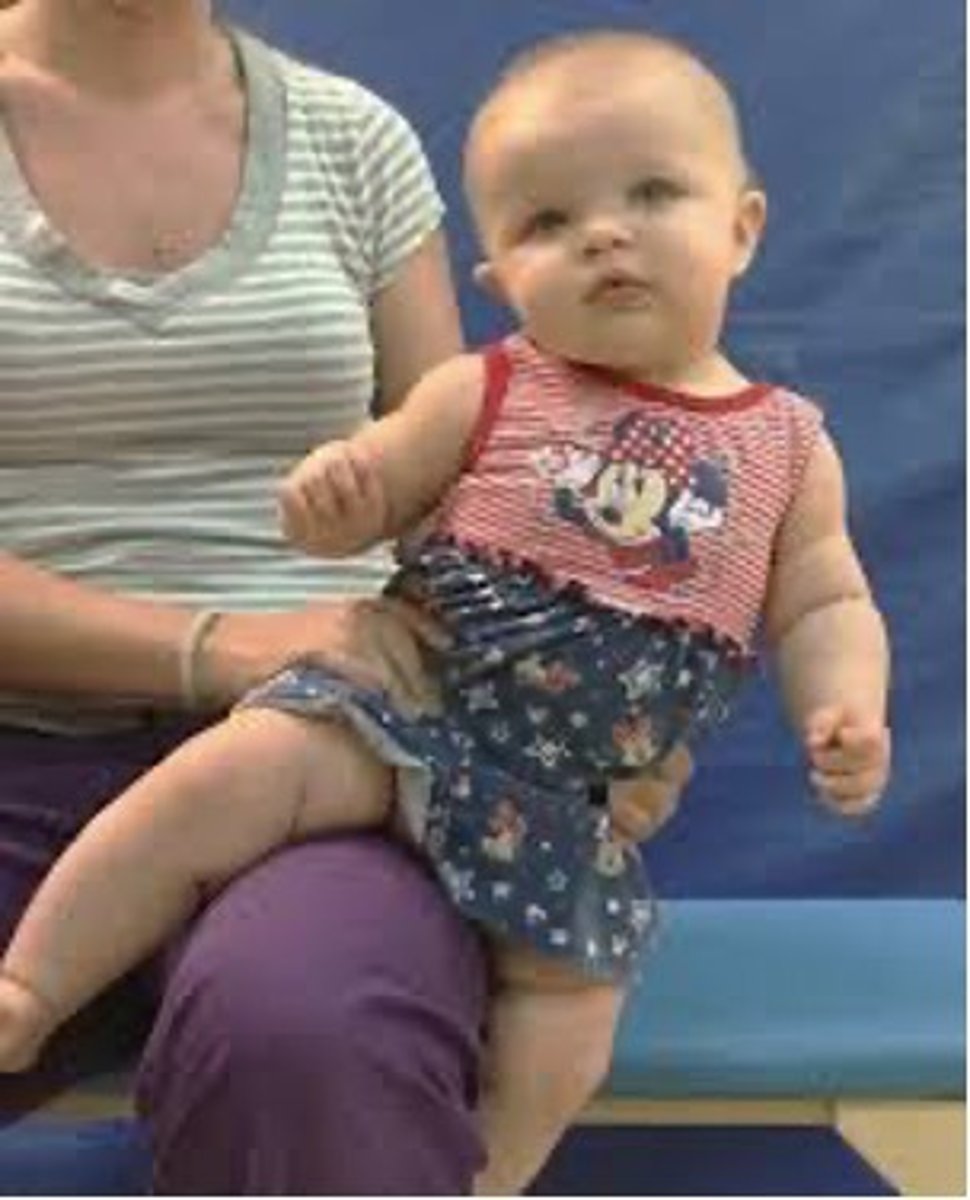
Equilibrium responses
Automatic responses to a disturbance in balance, by which the individual makes motor adjustments to regain balance over the center of gravity
- raising opposite arm to keep balance
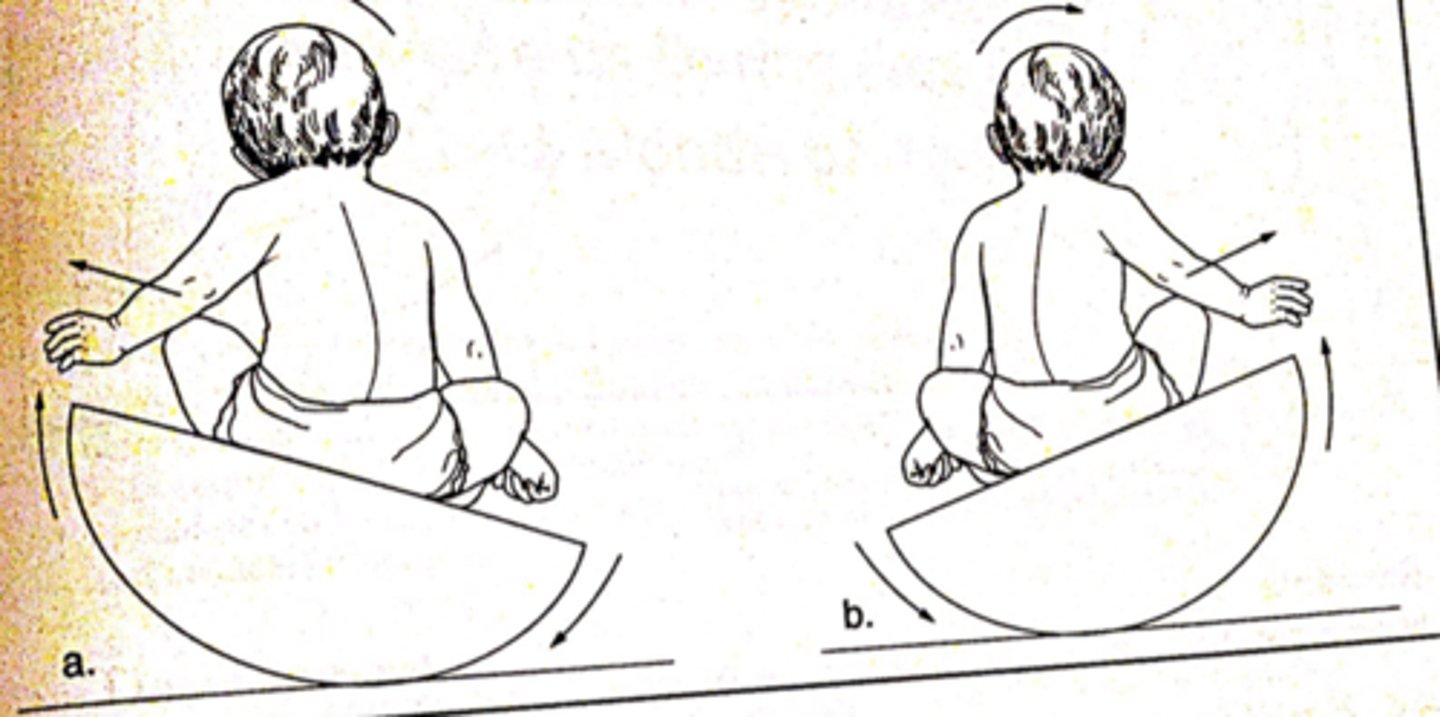
babinski reflex
- onset: birth
- integration: 12-24 months
- position: supine
- When the sole of a baby's foot is gently stroked from the heel to the toes, the big toe extends upward (dorsiflexion) and other toes fan out
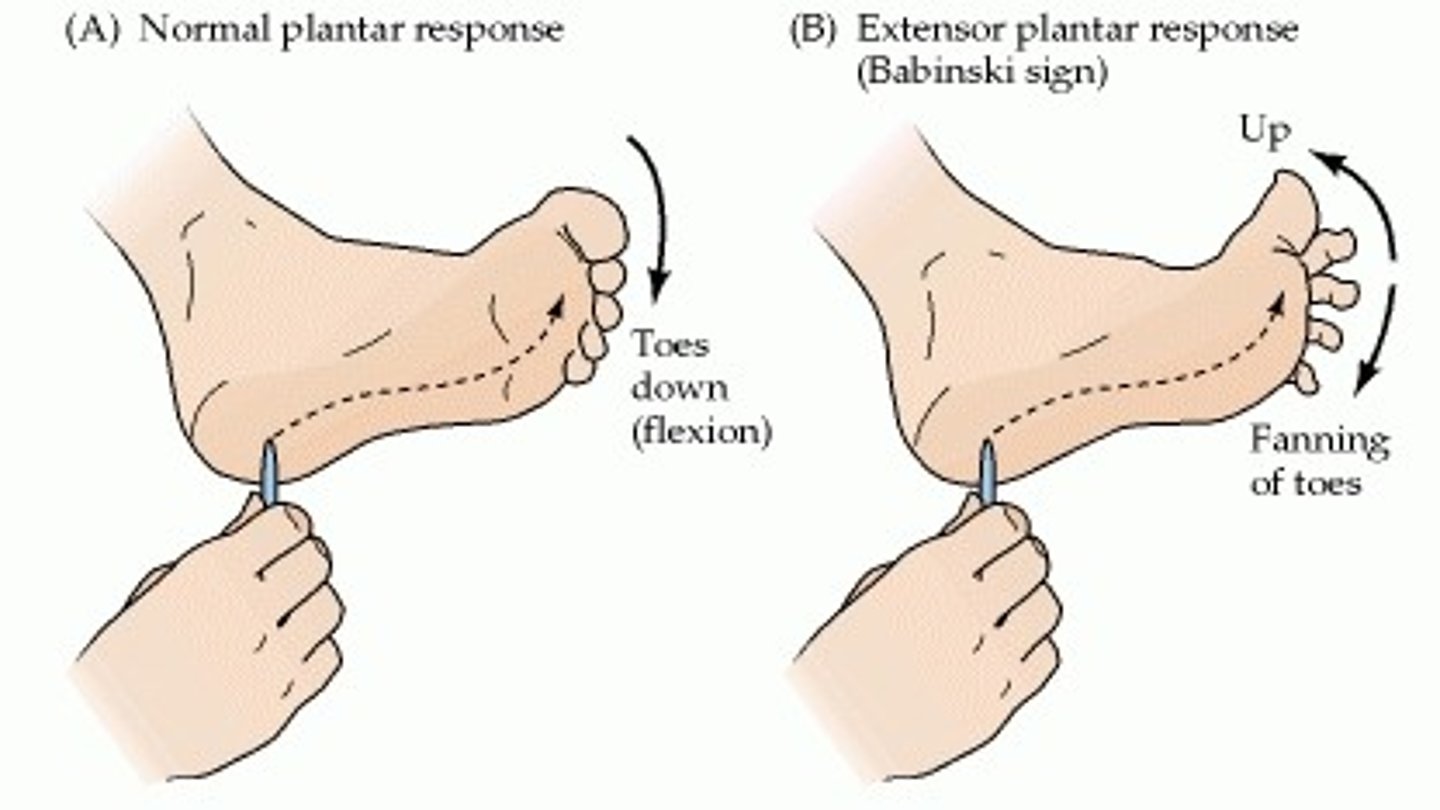
protective extension
putting arms out when falling/leaning forward
- example: toddler learning to walk and falls forward
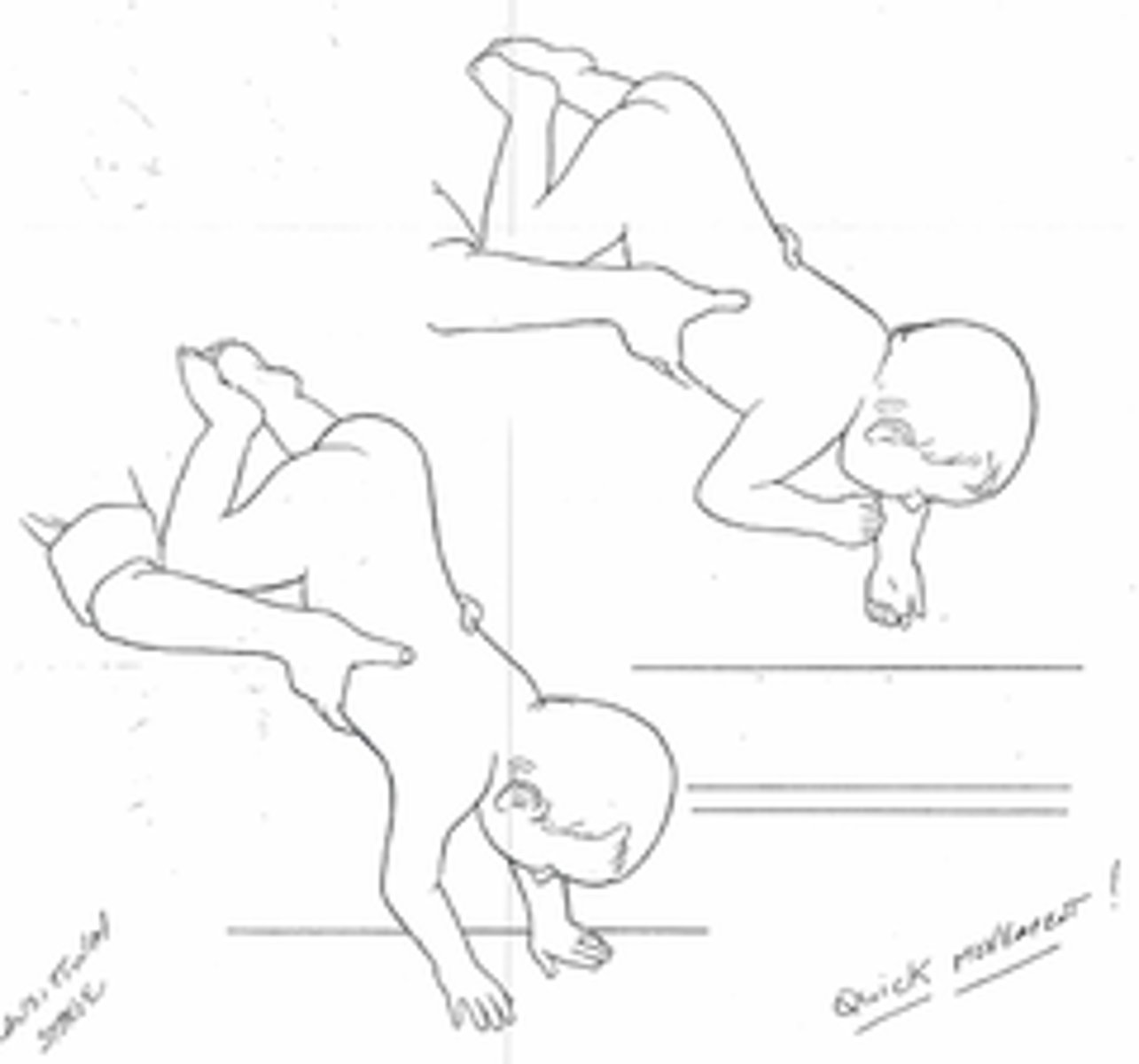
suck swallow reflex
- position: supine
- onset: birth
- integration: 2-4 months
- When a baby's hard palate is stimulated by a finger, nipple, or other object (ex, nipple of bottle or binky), an involuntary sucking action is initiated
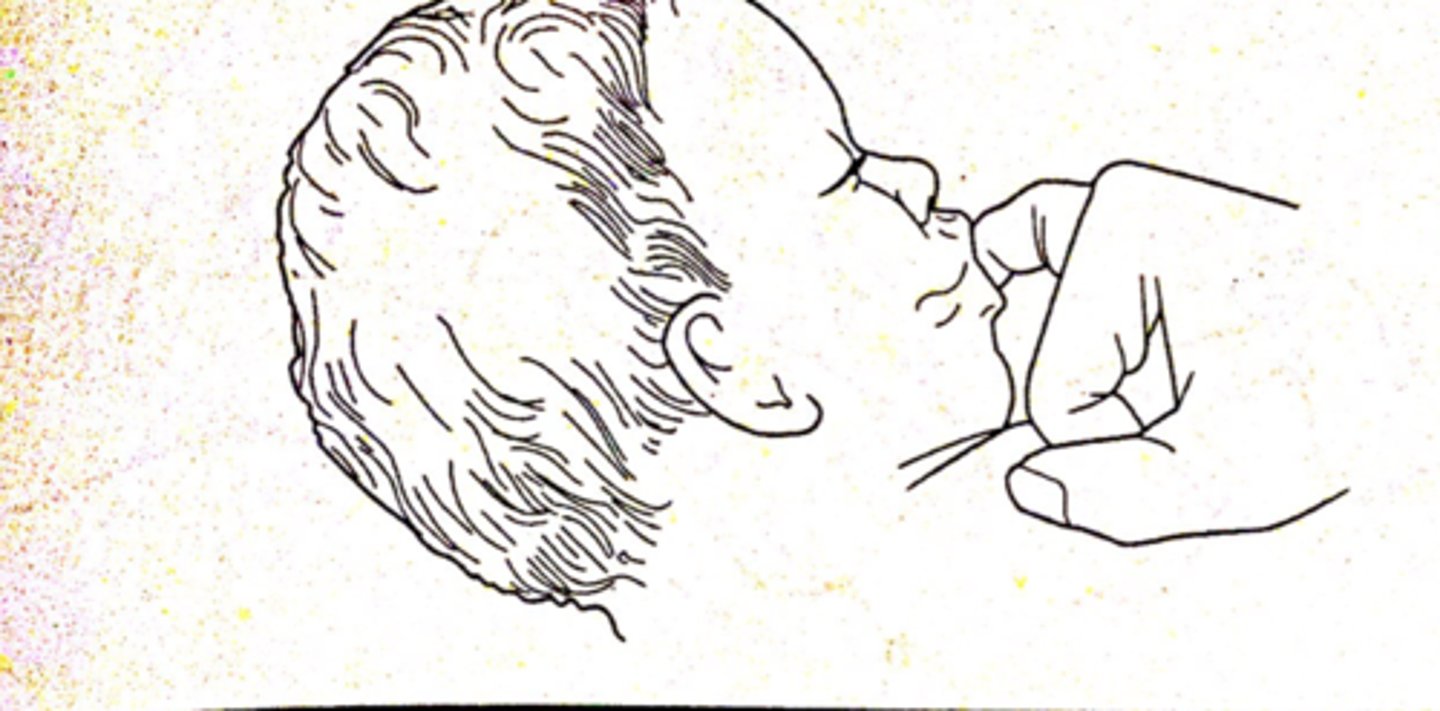
palmar reflex
- onset: birth
- integration: 5-6 months
- when a baby's palm is stroked or touched, their fingers flex and tightly close aorund the object or person touching them
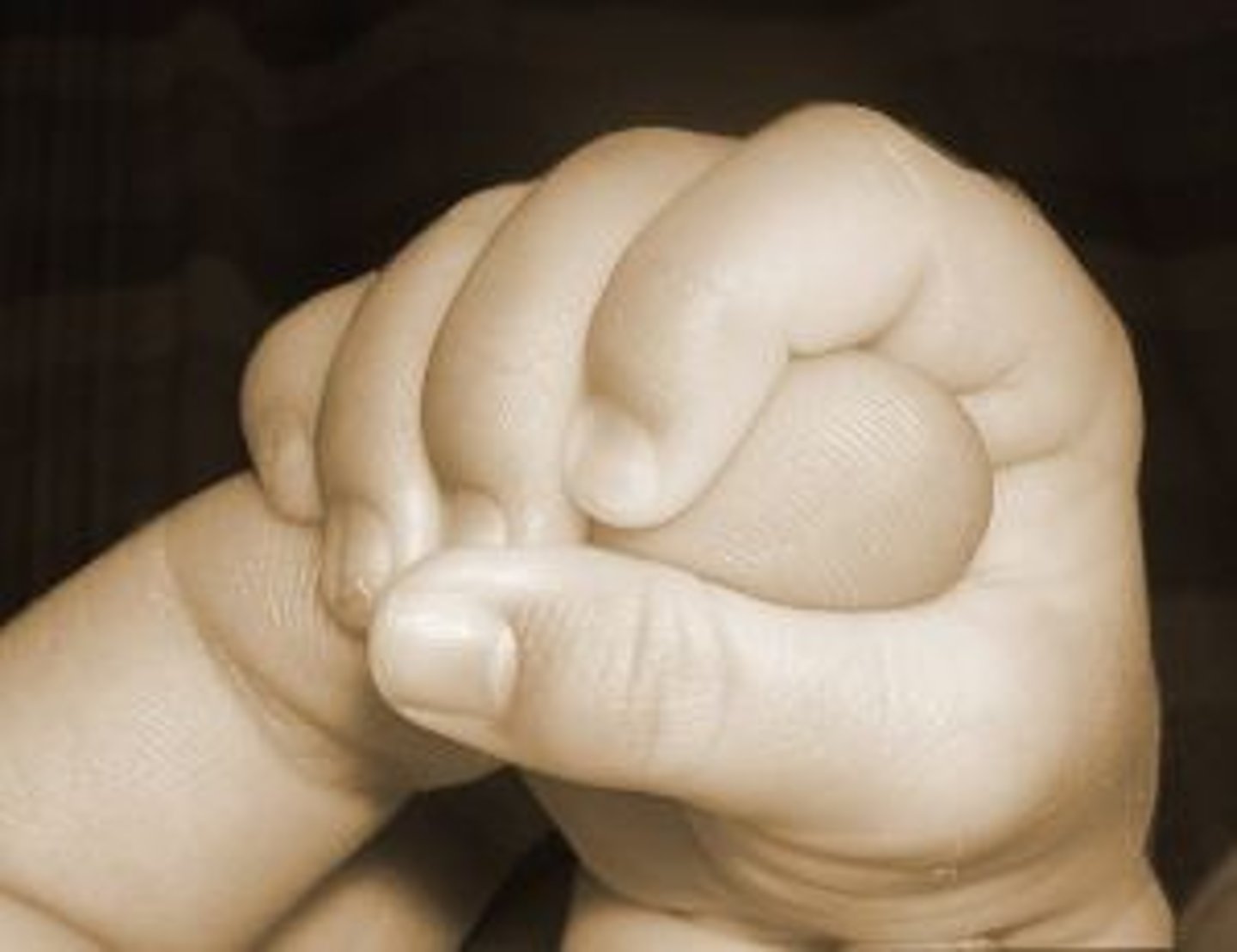
Order of reflexes
1. suck swallow
2. rooting
3. moro
4. palmar grasp
5. galant
6. babinski
7. ATNR
8. TLR
9. STNR